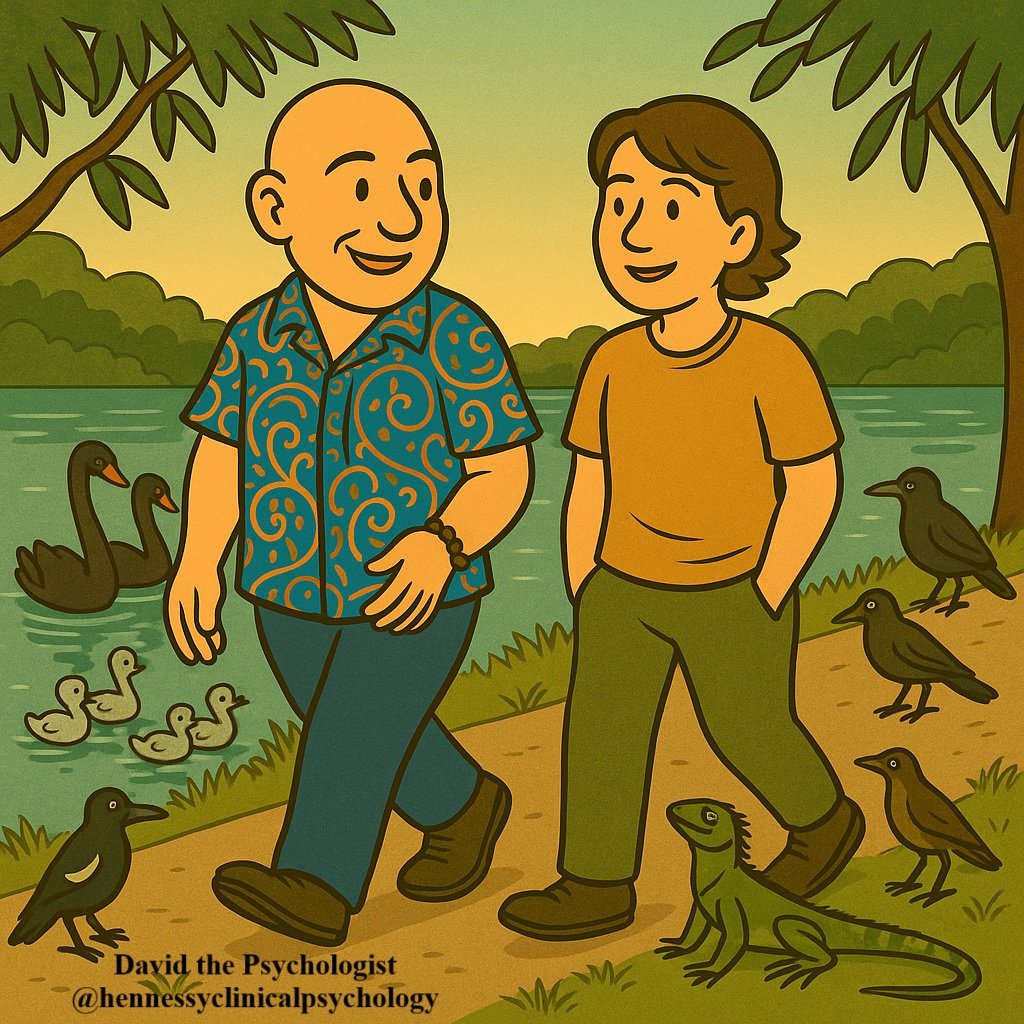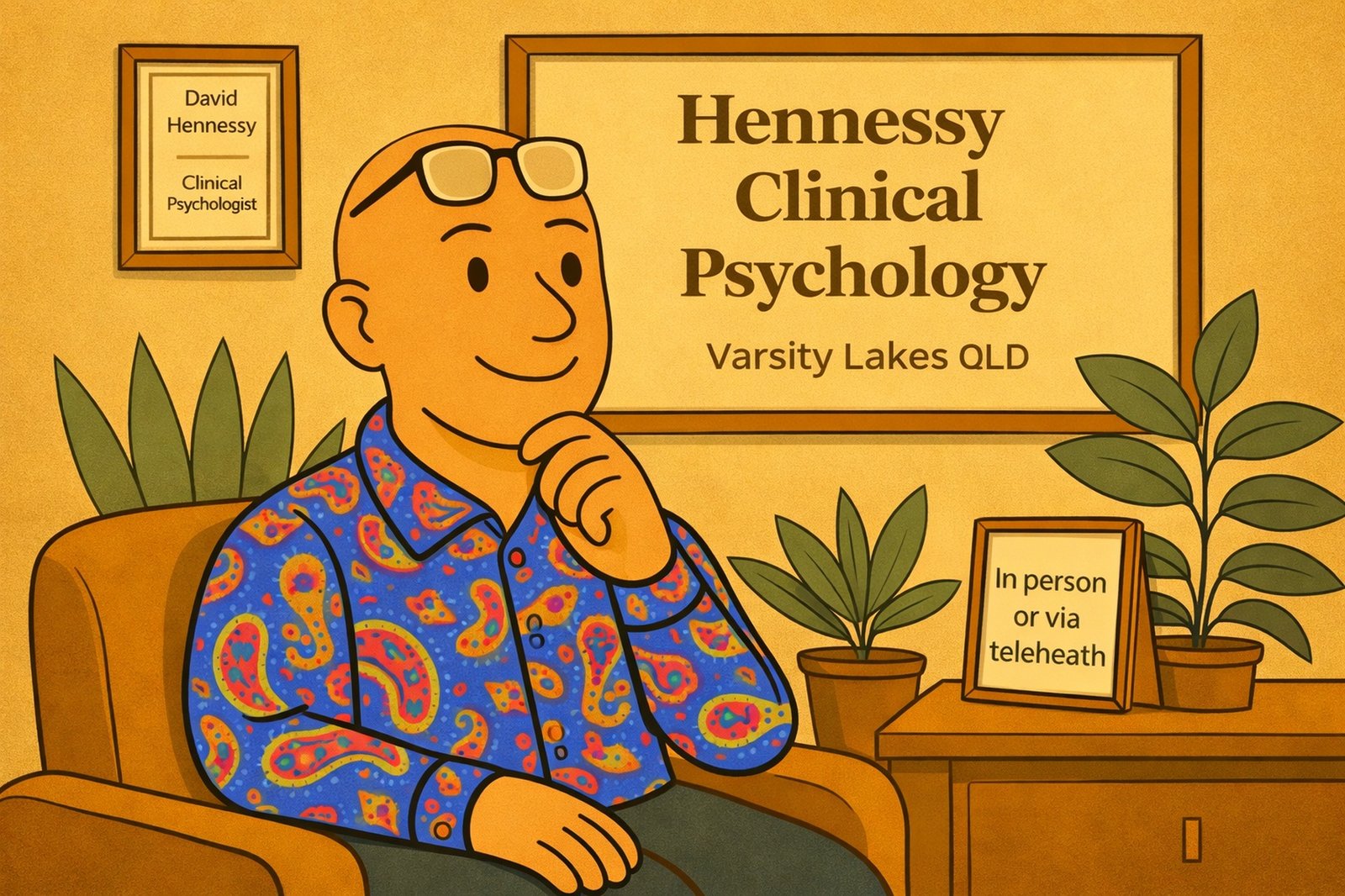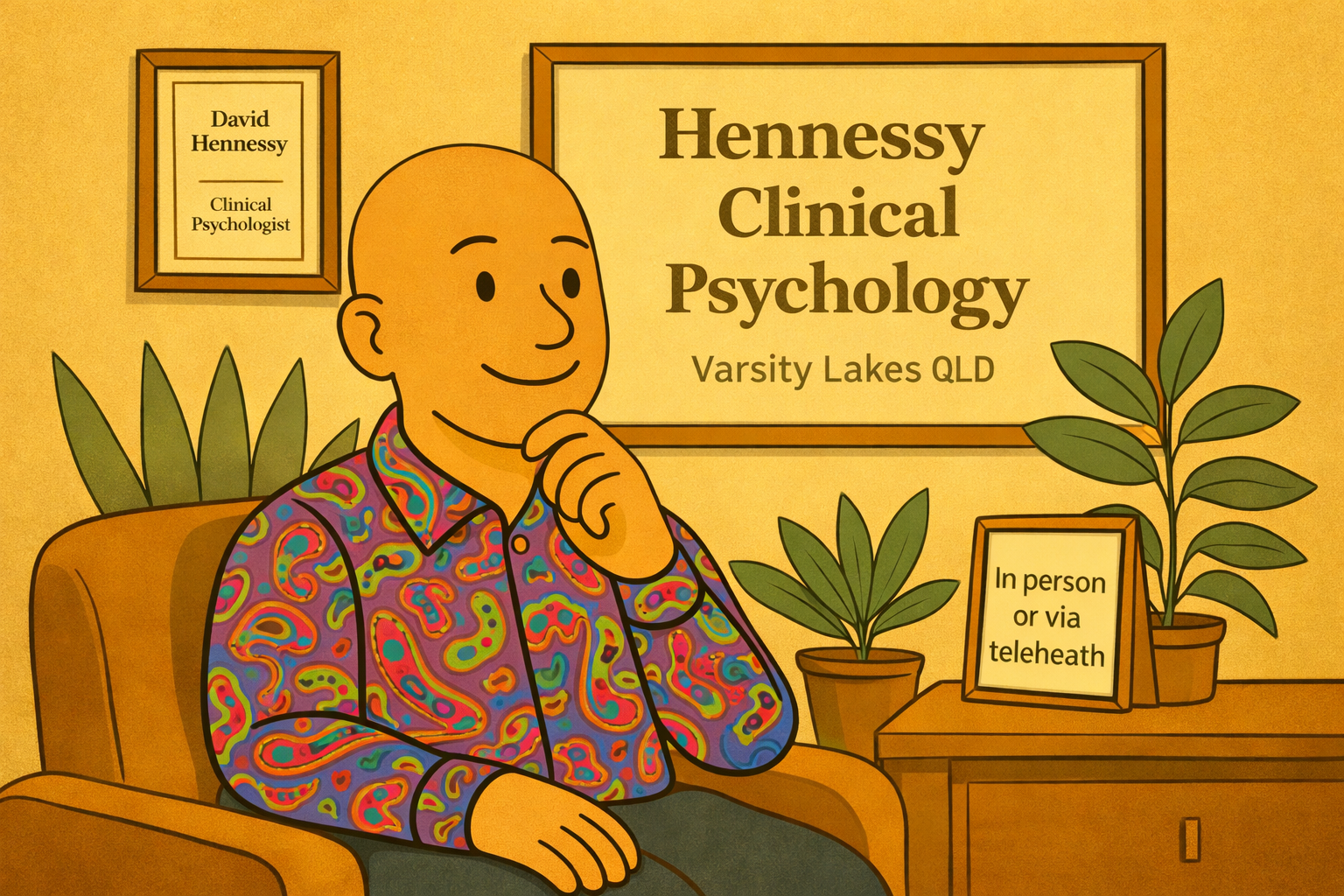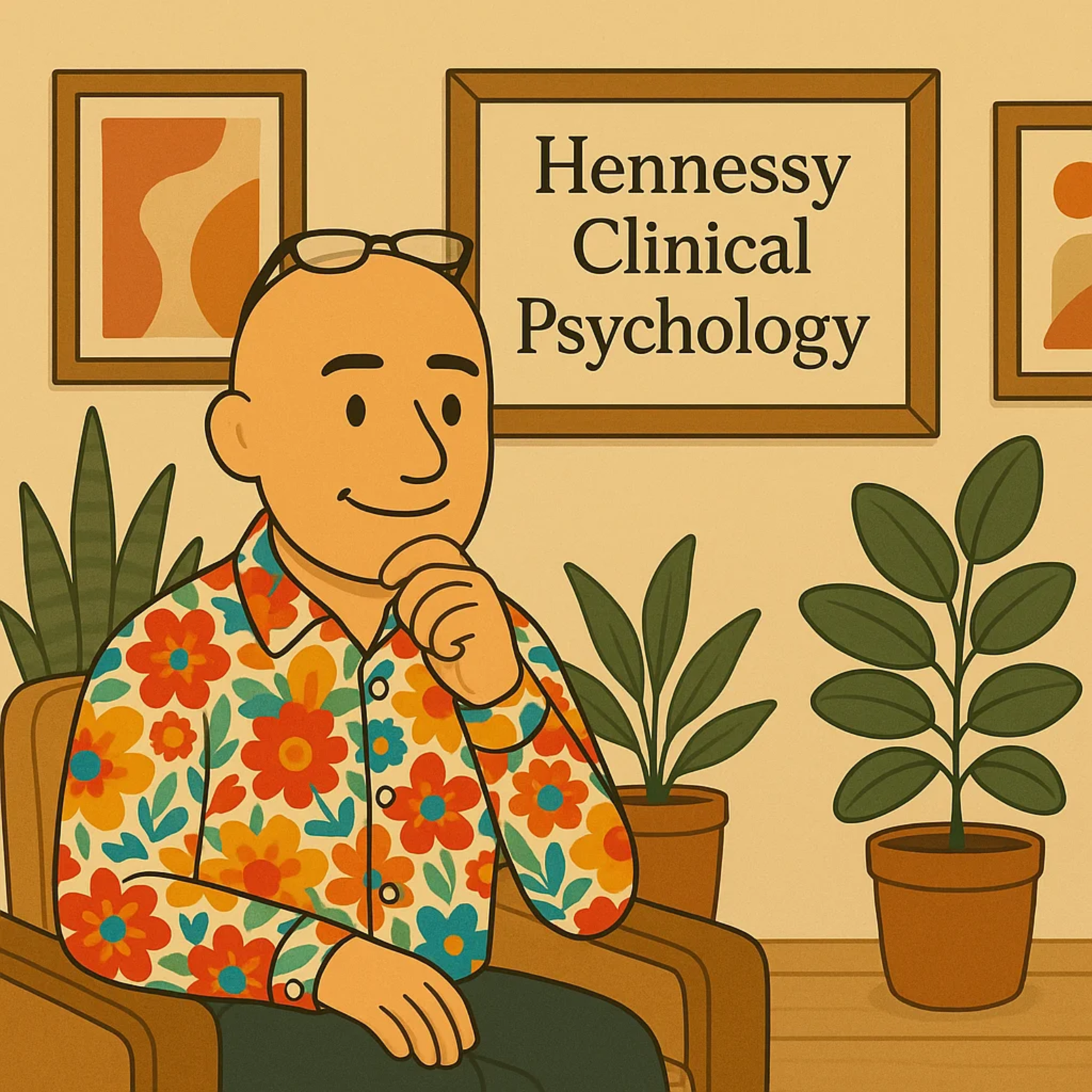Mindful Self-Care: Simple Things Matter for Wellbeing
By David Hennessy, Clinical Psychologist, Varsity Lakes

We Often Unintentionally Put Ourselves Last
Even when we’re pretty good at self-care, it’s easy to get busy and put ourselves on the backburner.
In the busyness of life, self-care often slides quietly down the priority list. Yet these mindful moments of self-care are not just “nice to have”—they are protective, restorative, and essential for long-term wellbeing.
The good news? Many of the most effective self-care practices are simple, free, and grounded in everyday experiences.
Why Mindful Self-Care Matters
Mindful self-care means bringing conscious awareness to activities that nurture and replenish us. It allows our nervous system to recalibrate and fosters resilience.
Research shows that intentional self-care practices can:
- Improve mood
- Reduce stress and anxiety
- Support emotional regulation
- Enhance overall physical health [1, 2]
Nature: Simple, Free, And Healing
Spending time in nature has been shown to reduce stress hormones, lower blood pressure, and improve cognitive function [1].
You don’t need wilderness—gardens, parks, a nearby tree, or even the sky can offer connection and calm.
- Walk slowly, noticing sounds and textures
- Sit quietly under a tree
- Watch clouds move across the sky
Mindfulness: Bringing Awareness To The Present
Mindfulness can be woven into everyday moments—not just formal meditation. Practising mindful self-care helps regulate emotions, improve focus, and reduce reactivity [2].
- Pause and take 5 slow breaths
- Notice how your feet feel on the ground
- Savour the aroma and taste of your tea or coffee
The Power Of Simple Pleasures
Self-care also includes engaging in what brings joy and meaning:
- Fun and Play: Laughter and lightheartedness activate reward pathways and enhance wellbeing.
- Hobbies and Creativity: Whether gardening, painting, or building something, creative activity engages and balances the brain.
- Learning and Reading: Exploring new ideas supports cognitive health and lowers stress.
- Connection and Conversation: Meaningful chats with others foster emotional regulation and connection [3].
- Pausing And Being: Sometimes doing nothing is the most healing thing you can do. Give yourself permission to pause.
Start Small, Go Often
Self-care doesn’t require big changes. Small, regular mindful moments—walks in nature, quiet pauses, hobbies, laughter—help build resilience and restore balance.
References
- Bratman, G. N., Anderson, C. B., Berman, M. G., Cochran, B., de Vries, S., Flanders, J., … & Daily, G. C. (2019). Nature and mental health: An ecosystem service perspective. Science Advances, 5(7), eaax0903. https://doi.org/10.1126/sciadv.aax0903
- Keng, S. L., Smoski, M. J., & Robins, C. J. (2011). Effects of mindfulness on psychological health: A review of empirical studies. Clinical Psychology Review, 31(6), 1041–1056. https://doi.org/10.1016/j.cpr.2011.04.006
- Holt-Lunstad, J., Smith, T. B., Baker, M., Harris, T., & Stephenson, D. (2015). Loneliness and social isolation as risk factors for mortality: A meta-analytic review. Perspectives on Psychological Science, 10(2), 227–237. https://doi.org/10.1177/1745691614568352
Related Posts
- The Psychology Of Fun: It’s More Important Than You Might Think
- Clarifying Your Values: Enhance Your Life Direction
- Gentle Grounded Truth Might Be More Helpful Than Overly Positive Reassurance
Enquiries / Appointments
FAQ
What is mindful self-care?
Mindful self-care is the practice of paying intentional, non-judgmental attention to activities that support your physical, emotional, or psychological wellbeing.
Do I need lots of time or money to practise self-care?
No. Many effective self-care strategies—like walking outside, having a chat, or taking a few deep breaths—are free and quick.
How does nature help with stress?
Spending time in natural settings can lower cortisol levels and support calm, focused mental states.
Can connection really affect my health?
Yes. Strong social ties are linked to lower stress, improved mental health, and even longer life expectancy.



